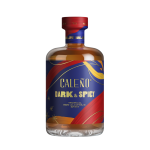- The ultimate cooking apple has been grown in the UK for over 200 years, but this year it could be more popular than ever
- The original Bramley tree grew from a pip planted by Mary Ann Brailsford in Nottinghamshire in 1809
- British growers have handpicked an estimated 76 million Bramley apples this year
The British apple and pear season is now well underway, with the best of British apple varieties widely available in UK supermarkets. The humble English Bramley apple is a year-round feature of shop shelves, but not many people know the origins of the cooking favourite.
The original Bramley tree grew from a pip planted by a little girl called Mary Ann Brailsford in Nottinghamshire in 1809 – perhaps meaning that the true name of the variety should have been ‘Brailsford’. However, as time passed and the tree kept producing delicious cooking apples, eventually the house was sold to a man called Matthew Bramley. A local plant nursery worker, Henry Merryweather, realised that this could be a valuable type of apple and began to take cuttings to produce more trees. They named the apple ‘Bramley’ after the owner of the tree.
From such humble beginnings, two centuries of Bramley apple cooking and baking have followed. And this year the Bramley is expected to be more popular than ever. Home baking soared during the early stages of lockdown1 and British Apples and Pears expects the more recent restrictions and colder weather to have a similar, if not bigger, impact, driving up demand for Bramley apples and other baking goods.
Ali Capper, Executive Chair at British Apples & Pears, comments: “Bramley apple pies and crumbles may be the traditional favourites, and just as popular as ever, but this wonderful English apple is actually incredibly versatile in both sweet and savoury dishes.”
Bramleys have a beautifully sharp flavour and lots of juice. A cloud-like, apple ‘fluffiness’ can be created when Bramleys are cooked, hence their popularity for sweet dishes. They also contain malic acid which is perfect when you want to tenderise tougher or cheaper cuts of meat. Bramleys also make a great substitute for other tart fruits in curries and some Asian dishes.
Ali Capper continues: “Having grown in the UK for over 200 years, Bramleys have a unique heritage and remain the nation’s favourite cooking apple. This year, British growers handpicked an estimated 76 million Bramley apples from August through to late September.”
With healthier eating riding higher on the consumer agenda than ever before, it’s important to remember exactly why ‘an apple a day’ has long been advised. Apples comprise of 86% water, making them naturally hydrating, as well as being fibre-rich and releasing their energy slowing; helping us to avoid blood sugar spikes. What’s more, eating apples and pears supports gut health and encourages the growth of more friendly bacteria in the large bowel, essential for keeping a healthy gut in the long term.



